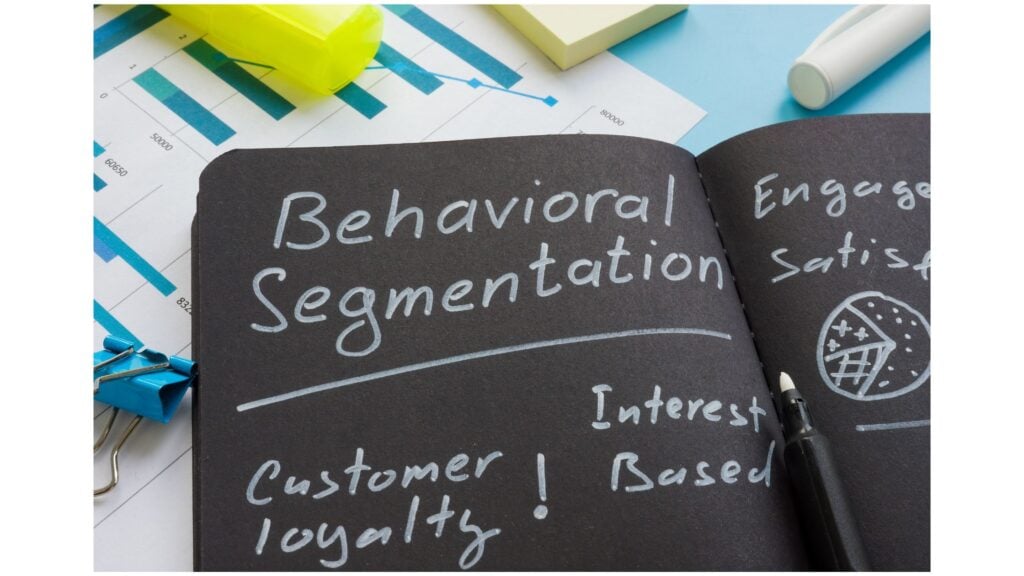Relationship Marketing: Building Lasting Customer Connections
Understand relationship marketing
Relationship marketing represent a fundamental shift from traditional transaction base marketing approaches. Alternatively of focus exclusively on individual sales, relationship marketing prioritizes build long term connections with customers. This strategy recognize that customer retention frequently prove more profitable than continuous customer acquisition.
At its core, relationship marketing aim to create strong emotional bonds between brands and their customers. These connections transform occasional buyers into loyal advocates who return repeatedly and recommend the brand to others.
Key principles of relationship marketing
Customer centricity
Successful relationship marketing place customers at the center of all business decisions. This mean understands customer needs, preferences, and pain points through careful listening and observation. Companies that excel in relationship marketing regularly collect customer feedback and use these insights to improve products, services, and experiences.
Customer-centric organizations structure their operations around enhance customer satisfaction quite than entirely maximize short term profits. This might include design more intuitive products, create more responsive customer service systems, or develop personalized solutions to address specific customer challenges.
Value beyond transactions
Relationship marketing require provide value outside the basic transaction. This could take many forms:
- Educational content that help customers maximize product benefits
- Community building initiatives that connect customers with share interests
- Exclusive experiences that reward loyalty
- Personalized recommendations base on previous interactions
When customers receive ongoing value between purchases, they develop stronger connections to the brand and feel less inclined to explore competitive offerings.
Consistent communication
Regular, meaningful communication from the backbone of relationship marketing. This doesn’t mean bombard customers with promotional messages, but kinda engage them through relevant, timely, and helpful interactions across multiple touchpoints.
Effective relationship marketers develop communication strategies that balance provide useful information with respect customer boundaries. They besides ensure message consistency across channels while tailor the approach to each platform’s unique characteristics.
Trust and transparency
Trust serve as the foundation for any last relationship, include those between brands and customers. Relationship marketing emphasize honest communication, set realistic expectations, and follow through on promises. This includes transparency about product limitations, pricing structures, and company policies.
When mistakes happen — as they ineluctably do — relationship focus organizations address them quickly and frankly. This approach frequently transforms potential relationship damage moments into opportunities to demonstrate integrity and commitment to customer satisfaction.
Benefits of relationship marketing
Increased customer retention
Possibly the about significant benefit of relationship marketing is improved customer retention. Research systematically show that increase customer retention rates by merely 5 % can increase profits by 25 % to 95 %. This dramatic impactoccursr because:
- Exist customers tend to spend more per transaction
- Long term customers oftentimes require less service support
- Satisfied customers become less price sensitive over time
By focus on build relationships instead than scarce complete transactions, businesses create an environment where customers see little reason to switch to competitors.
Word of mouth marketing
Customers who feel emotionally connected to a brand course become its advocates. This word of mouth marketing — whether through personal recommendations, social media sharing, or online reviews — carry exceptional credibility. People trust recommendations from friends and family far more than traditional advertising messages.
Relationship marketing cultivate these powerful advocates by create experiences worth talk about and by treat customers in ways that inspire loyalty and enthusiasm.
Valuable customer insights
The ongoing dialogue establishes through relationship marketing provide a wealth of customer data and insights. These insights help companies:
- Identify emerge needs before competitors
- Refine products base on actual usage patterns
- Develop more effective marketing messages
- Recognize early warning signs of customer dissatisfaction
This continuous feedback loop creates a competitive advantage that transaction focus businesses struggle to match.
Reduced marketing costs
Acquire new customers typically cost five to seven times more than retain exist ones. Relationship marketing help reduce these acquisition costs by focus resources on nurture exist customer relationships. Additionally, the word of mouth marketing generate through strong customer relationships oftentimes reduce the need for expensive advertising campaigns.
Relationship marketing strategies
Loyalty programs
Loyalty programs provide structured ways to reward customers for ongoing engagement. Effective loyalty programs go beyond simple points systems to create meaningful benefits that align with customer values. The virtually successful programs:
- Offer rewards that customers truly value
- Make earn and redeem rewards square
- Include experiential benefits beyond discounts
- Create a sense of exclusivity or membership
Companies like Starbucks, Sephora, and Amazon have build powerful loyalty programs that drive repeat business while collect valuable customer data.
Personalization
Today’s consumers progressively expect personalized experiences. Relationship marketing leverage customer data to deliver customize interactions across touchpoints. This might include:
- Product recommendations base on previous purchases
- Content tailor to specific interests or needs
- Special offer align with individual preferences
- Communication through preferred channels
Effective personalization make customers feel understand and value, strengthen their connection to the brand.
Exceptional customer service
Outstanding customer service represent one of the nearly powerful relationship building tools. Companies that excel in relationship marketing invest intemperately in customer service training, systems, and culture. They empower service representatives to solve problems creatively and view each customer interaction as an opportunity to deepen the relationship.
Brands like Zappos and Nordstrom have build legendary reputations base mostly on their commitment to extraordinary customer service experiences.
Content marketing
Content marketing provide value through information, entertainment, or inspiration kinda than direct product promotion. This approach position brands as helpful resources instead than exactly vendors. Relationship focus content strategies might include:
- Educational blog posts that address customer questions
- Video tutorials that help customers maximize product benefits
- Interactive tools that solve common problems
- Community forums where customers can connect and share
By systematically deliver valuable content, brands remain present in customers’ lives between purchases and establish themselves as trust authorities.
Community building
Create communities around brands provide powerful relationship build opportunities. These communities offer customers places to connect with like-minded individuals while strengthen their bond with the brand. Successful brand communities:

Source: noteslearning.com
- Facilitate meaningful interactions among members
- Provide exclusive access to information or experiences
- Recognize and celebrate member contributions
- Allow for authentic two-way communication with the brand
Companies like Harley-Davidson, peloton, and Lego have build thrive communities that transform customers into passionate brand advocates.
Implement relationship marketing
Customer relationship management systems
Effective relationship marketing require robust systems for track customer interactions and preferences. Customer relationship management (cCRM)platforms serve as the technological backbone for relationship marketing efforts. These systems:
- Centralize customer data from multiple touchpoints
- Track the history of each customer relationship
- Identify patterns and opportunities for personalization
- Facilitate coordinate communication across departments
When decent implement, CRM systems enable more consistent, personalize customer experiences while provide valuable analytics for continuous improvement.
Cross-functional alignment
Relationship marketing can not succeed as an isolated marketing department initiative. It requires alignment across the entire organization, with every department understand its role in build customer relationships. This might involve:
- Product development teams incorporate customer feedback
- Operations focus on reliability and convenience
- Finance develop customer friendly policies
- Leadership demonstrate commitment to customer centricity
Organizations that excel in relationship marketing ensure that customer relationship goals inform decisions at every level.
Employee engagement
Frontline employees play a crucial role in relationship marketing success. Their interactions with customers direct impact relationship quality. Companies serious about relationship marketing invest in:
- Hire employees with strong interpersonal skills
- Training that emphasize relationship build techniques
- Empower employees to make customer focus decisions
- Recognition systems that reward relationship strengthen behaviors
Research systematically show that engage employees create engaged customers, create a virtuous cycle of positive relationships.
Measure relationship marketing success
Customer lifetime value
Customer lifetime value (cCLV)represent perchance the virtually important relationship marketing metric. This calculation estimate the total revenue a business can moderately expect from a single customer throughout their relationship. Increase clCLVndicate successful relationship build efforts.
Tracking CLV help businesses understand the long term impact of relationship investments and make more inform decisions about resource allocation.
Net promoter score
The net promoter score (nNPS)measure customer loyalty by ask how likely customers are to recommend the company to others. This simple metric provide powerful insights into relationship strength. Companies with high npNPScores typically enjoy stronger customer relationships and faster growth than competitors.
Customer retention rate
Customer retention rate straightaway measure relationship marketing effectiveness by track the percentage of customers who remain active over time. Increase retention rates indicate strengthen customer relationships, while decline rates suggest relationship problems require attention.
Customer satisfaction
Regular customer satisfaction measurements provide relationship health indicators. These assessments might include:
- Post interaction surveys
- Annual relationship quality assessments
- Focus groups explore relationship perceptions
- Analysis of customer service interactions
By consistently track satisfaction across touchpoints, companies can identify relationship build opportunities and address potential problems before they damage customer connections.
Challenges in relationship marketing
Balance personalization and privacy
While customers appreciate personalized experiences, they besides value privacy. Relationship marketers must navigate this tension cautiously, use customer data respectfully while maintain transparent privacy practices. This challenge grow more complex as privacy regulations evolve and consumer privacy concern increase.
Scaling personal connections
Build authentic relationships become progressively difficult as companies grow. Maintain the personal touch that define strong relationships while serve thousands or millions of customers require thoughtful systems and technologies. Organizations must find ways to create feelings of personal connection eventide in automate interactions.

Source: marketing91.com
Demonstrate ROI
Relationship marketing investments oftentimes produce returns over extended periods, make their immediate impact difficult to measure. Marketing leaders must develop comprehensive measurement frameworks that capture both short term metrics and long term relationship value to justify continued investment.
The future of relationship marketing
As technology evolves and consumer expectations shift, relationship marketing continue to transform. Several trends shape its future direction:
Ai enhance personalization
Artificial intelligence enable progressively sophisticated personalization at scale. Ai systems can analyze vast amounts of customer data to identify patterns and preferences, so deliver extremely customize experiences across touchpoints. This technology help bridge the gap between personalization and scalability.
Omnichannel relationship building
Today’s customers expect seamless experiences across physical and digital environments. Future relationship marketing success depend on create consistent, connected experiences disregarding of how or where customers interact with the brand.
Values base relationships
Progressively, customers seek relationships with brands whose values align with their own. This shift make authentic corporate social responsibility and clear brand values progressively important components of relationship marketing strategies.
Conclusion
Relationship marketing represent a fundamental shift from view customers as transaction targets to see them as valuable long term partners. By focus on build strong, reciprocally beneficial relationships, businesses create sustainable competitive advantages that transaction focus competitors struggle to match.
The about successful practitioners understand that relationship marketing isn’t merely a set of tactics but a comprehensive business philosophy that place customer relationships at the center of all decisions. Organizations that embrace this approach — invest in the systems, training, and cultural elements require for relationship excellence — position themselves for sustained growth in progressively competitive markets.
As technology continue to transform marketing possibilities, the fundamental principles of relationship marketing remain constant: understand your customers deep, provide consistent value beyond transactions, communicate meaningfully, and build trust through every interaction. These principles, decent apply, create the last customer connections that drive business success.



